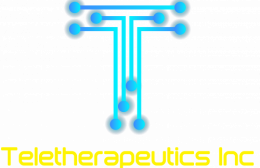Artificial Intelligence and specifically the rise of Machine Learning applications in the mental healthcare sector are giving great hope to the human race to achieve greater capacities to diagnose and treat diseases. One of the leading industries today that is being revolutionized by machine learning is undoubtedly the healthcare industry.
What is machine learning?
Machine learning is a concept mainly in Artificial Intelligence and thus in computer science. It is also an area that is related to, or adjacent to, computer vision and pattern recognition, among other things. Machine learning means that you teach computers to perform tasks based on data without them having to be programmed specifically. It is a way to, so to speak, train computers to solve a task. But the computer is not programmed to specifically solve that particular task, but must instead solve tasks itself based on different so-called “training data” data, mainly set up as different premises. Machine learning systems use complicated algorithms to learn from huge volumes of data. The more “training data” the algorithms have access to, the better the system learns to learn more.
Machine learning in relation to AI
Machine learning is considered part of AI. An “intelligent” computer thinks like a human being and performs activities on its own. One way to train a computer to mimic human thinking is to use a neural network, which is a series of algorithms modeled after the human brain.
The artificial intelligence allows improvements huge qualitative in the field of health, from improving early diagnosis of serious diseases such as breast cancer or melanoma , to predict kidney failure days in advance , to applications in telemedicine.
The algorithms of machine learning, mainly, are the culprits of these advances in medicine, few advances that can improve the quality of life of hundreds of thousands of patients and potentially save many lives.
Machine learning and mental health
There are many ways machine learning can help us better understand and possibly treat mental health conditions.
The human brain is most complex object in the universe and the problem with complex things is that they are difficult to solve. Billions of neurons vibrate incessantly across billions of synapses. This makes it extremely difficult to eavesdrop effectively. It also means that a lot of things can go wrong. In fact, our big brains can make us more susceptible to problems like schizophrenia and bipolar disorder .
So machine learning/AI can help us better understand the genetic, environmental, and brain structural relationships of mental health and in doing so, potentially provide us with some predictive/preventive/diagnostic tools.
First of all, artificial intelligence / machine learning can reduce existing barriers to seeking help. An example is catboats with machine learning conversational strategies as a useful first point of contact. As more and more people use these services, speaking strategies will become more refined and adaptable to individual patients.
Another treatment option that can be improved through artificial intelligence/machine learning is personalization of medical treatment. For example, not everyone responds to antidepressants. Combining brain scans with machine learning can predict who will (and won’t) respond . This can prevent people from experiencing unwanted side effects unnecessarily.

